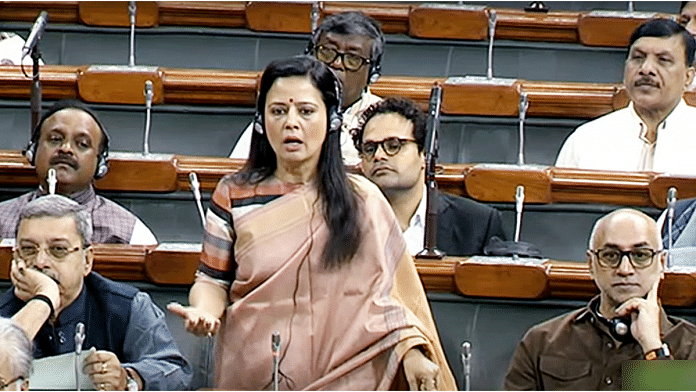Bharatiya Janata Party MP Nishikant Dubey recently sought an investigation into the allegation of bribery against Trinamool Congress MP Mahua Moitra. Even if Moitra took the bribe, she could not be prosecuted in a court of law because of the immunity granted to all parliamentarians under Article 105 of the Indian Constitution. As it exists today, the MPs can receive bribes to raise any questions or vote in Parliament without any consequence of criminal prosecution.
The paramount privilege to an MP’s vote or speech in Parliament translates to absolute freedom of speech and expression, which are subject to only the rules mandated by the House. The framers of the Constitution envisioned that this privilege would eliminate any fear of repercussion for the speech made in the House. The immunity, however, has an overreach. MPs who take bribes to vote are protected and cannot be prosecuted under the Prevention of Corruption Act 1988.
This immunity granted to a parliamentarian might seem perverted to a common citizen, and perhaps it is. The Supreme Court judgment in PV Narasimha Rao vs State (1998) ensured that MPs
and state legislators were immune from prosecution in bribery cases about any speech or vote in the House granted by Articles 105(2) and 194(2) respectively.
Additionally, the immunity granted to legislators ceases to exist when they accept a bribe and do not make good on the promise. If a legislator receives a bribe to vote a certain way and later reneges on the vote, it counts as an unfulfilled promise and the immunity does not apply. On the contrary, if the promise is completed upon accepting the bribe, immunity stays intact. This sense of justice has prevailed for two and a half decades now.
Revising the 1998 judgment
The Supreme Court has now taken an interest in correcting this by re-examining the 1998 judgment, the ramifications of which could be far-reaching. A seven-judge bench constituted by Chief Justice of India DY Chandrachud earlier this month seemed keen on modifying the judgment.
The opportunity to relook into the judgment arose because Jharkhand Mukti Morcha (JMM) leader Sita Soren had approached the Supreme Court in 2019 after the Jharkhand High Court refused to grant her immunity in the 2012 case where she was accused of taking a bribe to vote in the Rajya Sabha election. The high court rejected her plea for immunity under Article 194(2) not because she accepted a bribe but because she voted for a different candidate than the one she promised to vote for.
One of the possible outcomes of a modified PV Narasimha Rao judgment would be a cleaner Rajya Sabha election process, which is anecdotally fraught with cash-for-votes and other kinds of corruption. At the bare minimum, this constitutionally protected bribery may come to an end. A modified judgment also may move away from the earlier interpretation of the nexus test—bribery would be seen as independent of the performance of the promised favour and the act completed upon receiving a bribe. Such a modification would bring the judgment more in line with the Prevention of Corruption Act as well as standard ethical practices elsewhere in the world.
After this process, the Supreme Court will decide if the vote polled during the Rajya Sabha election is considered part of House proceedings and hence protected by Article 194(2). If it rules that the polls are not a part of the proceedings, which is also the stand of the central government, the judgment will not apply to the Rajya Sabha election process. Hence, legislators would not be able to seek protection from bribery under Article 194(2) vis-a-vis Rajya Sabha elections.
If the court rules otherwise, then the modified judgment might take a much stronger view of bribery and is less likely to grant immunity to legislators.
In either case, we are likely to see a major judgment being overturned—and it will lead to a wide-ranging impact, especially on the Rajya Sabha election process.
Kishen Shastry is a PhD candidate in Economics at the University of Cambridge. He works on topics in institutional economics. Ojaswi is an advocate in practice at the High Court of Karnataka. Views are personal.
(Edited by Humra Laeeq)



